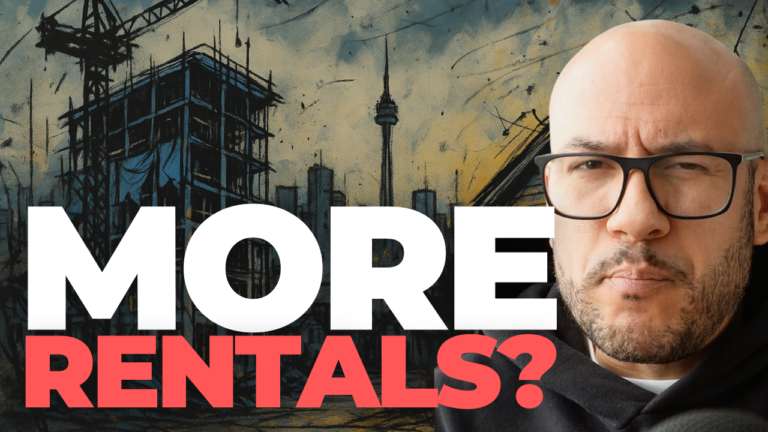Toronto’s housing market has never been more divided. For decades, detached homes were seen as the ultimate dream, but with affordability worsening and home prices skyrocketing, more buyers are turning to condos. But is one option really better than the other?
In this article, we’ll break down the affordability, quality of life, investment potential, and try to answer the question: “House vs Condo: Which is Better for Toronto’s Affordability Crisis”. Plus, we’ll explore why larger condos might be the hidden solution for families and how new policies could reshape the housing market.
House vs Condo: Which is Better for Toronto’s Affordability
The Greater Toronto Area (GTA) has seen a significant affordability gap between houses and condos over the past decade. Detached houses have become increasingly unattainable for first-time buyers, while condos remain the entry-level option. However, condos are not just budget-friendly; they’re evolving into more functional living spaces for families.
Affordability Breakdown: Houses vs Condos
Detached Houses:
- Current Benchmark Price: $1,621,900 (October 2024).
- Down Payment Requirement: At least $324,380 upfront (20%).
- Ongoing Costs: Higher property taxes, maintenance costs, and unpredictable repairs (e.g., roof or furnace replacements).
Condos:
- Current Benchmark Price: $672,700 (October 2024).
- Down Payment Requirement: As low as 5% ($33,635) for condos under $1 million.
- Ongoing Costs: Monthly maintenance fees (predictable but can feel burdensome).
The gap between houses and condos is staggering—over $950,000 or roughly 141% more for a detached home. For larger condos (2+den or 3-bedroom units), the average price is $952,457, narrowing the gap to 41% less than detached houses. Larger condos are becoming a more realistic option for families.
Quality of Life: Living in a Condo vs a House
Detached Houses:
- Offer private outdoor space, no shared walls, and more flexibility for renovations.
- Ideal for families, remote workers, and those who prioritize privacy.
- Often located in suburban or less transit-friendly areas, increasing reliance on cars.
Condos:
- Compact, low-maintenance living with access to amenities like gyms, pools, and rooftop terraces.
- Typically located in walkable neighbourhoods with access to transit, shops, and restaurants.
- Newer condos are rethinking layouts to maximize functionality in smaller spaces.
It’s a tradeoff between space and accessibility, but condos often win for those prioritizing convenience and proximity to work.
Investment Potential: Which Housing Option Wins?
Detached houses offer unparalleled flexibility for income generation.
- You can add rental units, build accessory dwellings, or rent out rooms.
- Detached homes appreciated 27% in the past five years, compared to condos, which appreciated 22%.
Condos, however, are catching up. Larger condos (2+den or 3-bedroom) appreciated 1.5% year-over-year, while average condo prices fell 1%. These family-sized condos are becoming high-demand, long-term investments.
The Future of Housing in Toronto
With rising commute times and a return-to-office trend, living near the city core is becoming increasingly desirable. As my colleague Dan Foch recently highlighted, Toronto’s office occupancy is now at 72% of pre-COVID levels, with peak days reaching 83%. This shift will likely push more buyers into the city.
Larger Condos: The Hidden Gems
Family-sized condos are no longer niche. They’re becoming a necessity as buyers look for affordable, spacious options. Developers, however, continue to target investors with small, high-yield units. To meet the needs of families, we must demand a shift in what gets built.
What Policies Are Needed for Better Housing Solutions?
Developers rely heavily on pre-construction sales to fund their projects, which is why they cater to investors. Banks and governments must step in to:
- De-risk pre-construction for end users by offering financing guarantees.
- Incentivize small-scale developments (2-10 unit complexes) to create more family-sized housing options.
- Reduce zoning barriers to enable quicker approval for affordable housing projects.
Final Thoughts
Houses might be the ultimate dream, but for most buyers, condos are the reality. The solution isn’t just to choose between the two—it’s to demand better-designed condos and smarter policies to create housing for families and individuals, not just investors.
Which do you prefer: houses or condos? Share your thoughts in the comments on Youtube or IG, and don’t forget to subscribe and follow on socials for more insights into Toronto’s housing market. And if you’re searching for a real estate hidden gem in Toronto – don’t hesitate to reach out!


